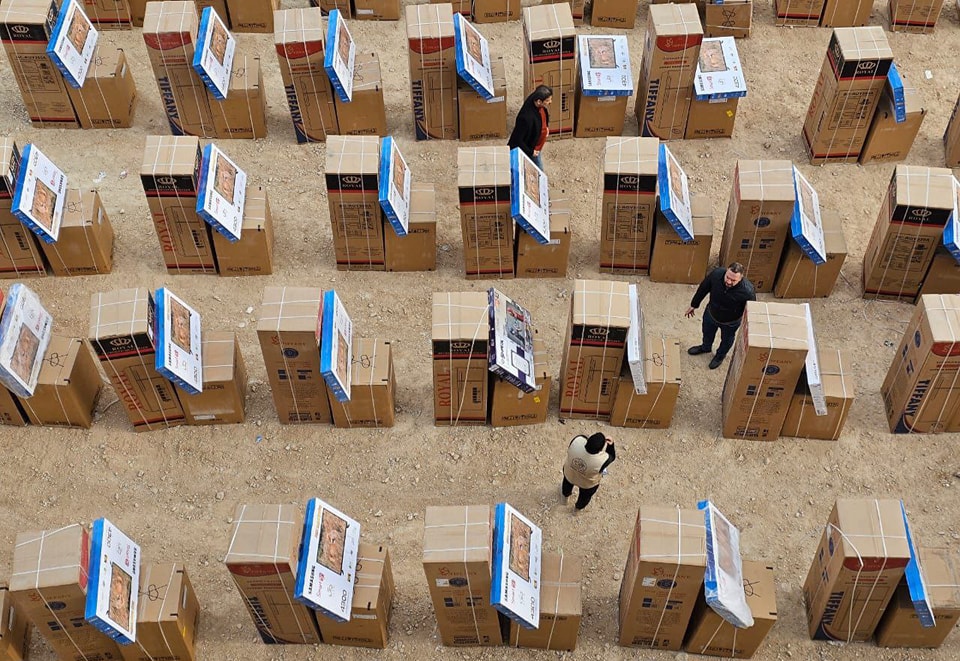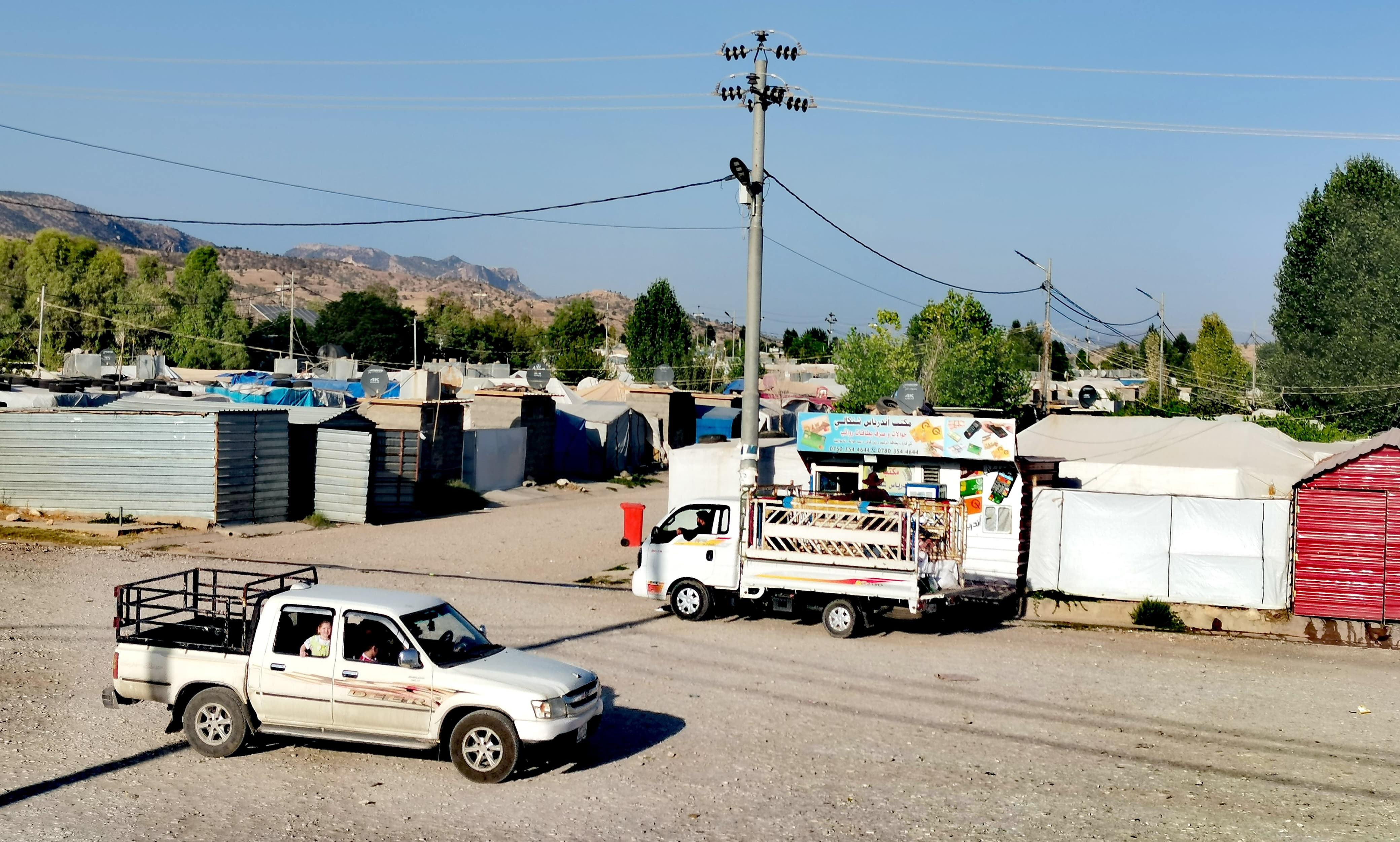The internally displaced people IDPs residing in the camps of the Iraqi Kurdistan Region IKR have only six months to return to their areas, and in return they will receive a grant of four million Iraqi dinars IQD (USD2,700), in addition to providing household supplies, job opportunities, and compensation.
The Iraqi Ministry of Immigration and Displacement intends to end its duties in the camps for the displaced at the end of July 2024, based on the Council of Ministers’ decision regarding the return of the displaced, which includes several measures, as increasing financial aid from 1.5 million IQD to four millions.
The grant will be distributed directly to each displaced family after their return, in addition to providing some supplies and electrical appliances such as refrigerators, televisions and stoves with a total value of about three million dinars.
Returnees from displacement in the IKR camps will also be included in programs for social protection benefits, a full-time helper for the disabled, and soft loans. The unemployed without benefits are an exception to the controls, according to the Cabinet decision issued on January 23, 2024.
The government's decision emphasized providing job opportunities for the unemployed, and allocating a percentage of contract appointments expected to be launched at the present time, equivalent to 2 percent of each job title, in addition to encouraging the displaced from Shingal (Sinjar), home for the non-Muslim Ezidi (Yazidi) community, and the Mosul Center to return by launching housing projects at reasonable prices.
“Not only me, but also two of my sons who got married after the events of 2014, we lost our homes and property, so the government must find a solution for those who suffer from the same conditions as us, and it must also provide the necessary services to our areas,” said Elias Qassem, 56, who has been living in a camp for displaced people in Dohuk Governorate for years.
There are more than 600,000 IDPs in the IKR, some of whom are distributed among 26 camps, 16 of which are in Dohuk Northern Province, housing 26,000 families, most of whom are Nineveh residents, especially from the Ezidi component of Shingal District, according to statistics from the Joint Crisis Coordination Center of the Kurdistan Regional Government KRG.

Distribution of refrigerators, stoves and television sets to families returning to Shingal from displacement camps, Nineveh, 2023. Ministry of Immigration
According to previous follow-ups by KirkukNow, the displaced people refrain from returning due to the instable security situation and the lack of basic services in their areas, and many families returning to their areas have returned again to the camps for the displaced in the IKR.
“My house was bombed by Daesh (ISIS) and I have nothing left. Now I cannot go back home in return for getting four million dinars,” Elias added, noting that two years ago he submitted a request for compensation, but he has not received anything yet.
Shingal fell under the control of the "Islamic State of Iraq and Syria - ISIS" in August 2014, and within months the battles led to the destruction of thousands of homes, buildings and infrastructure, while the fate of more than 2,500 Ezidis who were kidnapped and enslaved by ISIS militants remains unknown.
The Council of Ministers’ decision did not refer at all to the fate of the kidnapped, but it directed that a percentage of the budget of the Reconstruction Fund for the Liberated Areas be allocated to Shingal, because the budget previously allocated to Shingal and the Nineveh Plain was small and not commensurate with the extent of the damage to the region.
“According to the government’s decision, the file of the displaced must be ended and they must return to their areas until the end of next July, but the return is voluntary,” Ali Omar, Assistant Governor of Nineveh, told KirkukNow.
There is a proposal to build 4,000 housing units for the displaced people of Shingal
He explained that there is a proposal to build 4,000 housing units for the displaced people of Shingal who lost their houses, in addition to opening offices, representations, or branches of ministries and government institutions in the region to provide the necessary and essential services to the people of the war-torn district.
“The people must also cooperate with the concerned authorities for the return of the displaced people and coexist with them in Shingal as before,” according to Omar.
The reconstruction of Shingal District, which has been suffering for years from the presence of two administrations, is part of the provisions of the Shingal Agreement, which was also confirmed in the ministerial platform of the Iraqi government, although the agreement that was signed in 2020 has not yet been implemented.

The displaced Ezidis reside most of the IKR camps, Dohuk, 2023. Laith Hussein
Pir Dian Jaafar, Director of the Department of Migration, Displacement, and Crisis Response of the KRG in Dohuk, told (KirkukNow) that they support the return of the displaced, but on the condition that “the return is voluntary and that each family receives compensation, and the policy of the Kurdistan Regional Government stresses displaced people are not forced to return or the camps to be forcibly closed.”
The federal government closed all 55 camps located in the areas under its authority, and exchanged accusations on more than one occasion with regional government officials regarding the issue of the return of displaced persons and the closure of the IKR camps.
Evan Faiq, the Iraqi Minister of Immigration and Displacement, stressed that the return of the displaced is voluntary, but their duties in the camps will end at the end of next July, and that they can complete the file before that date because the camp residents live in difficult and unhealthy conditions, according to the ministry’s statement.
The displaced people residing in the camps of the IKR suffer from many problems, including the absence of financial aid, the lack of necessary life necessities, and the scarcity of drinking water, after that most of the international aid organizations stopped their activities in the camps.
"We will continue our support for the displaced and deliver services to them as long as there is one family here in the camps,” Pir Dayan Jaafar said. “We have been doing this for two years after international organizations withdrew, especially those that were working in the field of providing electricity, water, and health services."
Six million Iraqi citizens were displaced from their areas due to the ISIS war and the military operations of the Iraqi forces in the period of war against ISIS, 2014 to 2017, and according to statistics from the International Organization for Migration IOM, over one million citizens are still living in displacement, including the displaced people residing in the camps of the Kurdistan Region.





